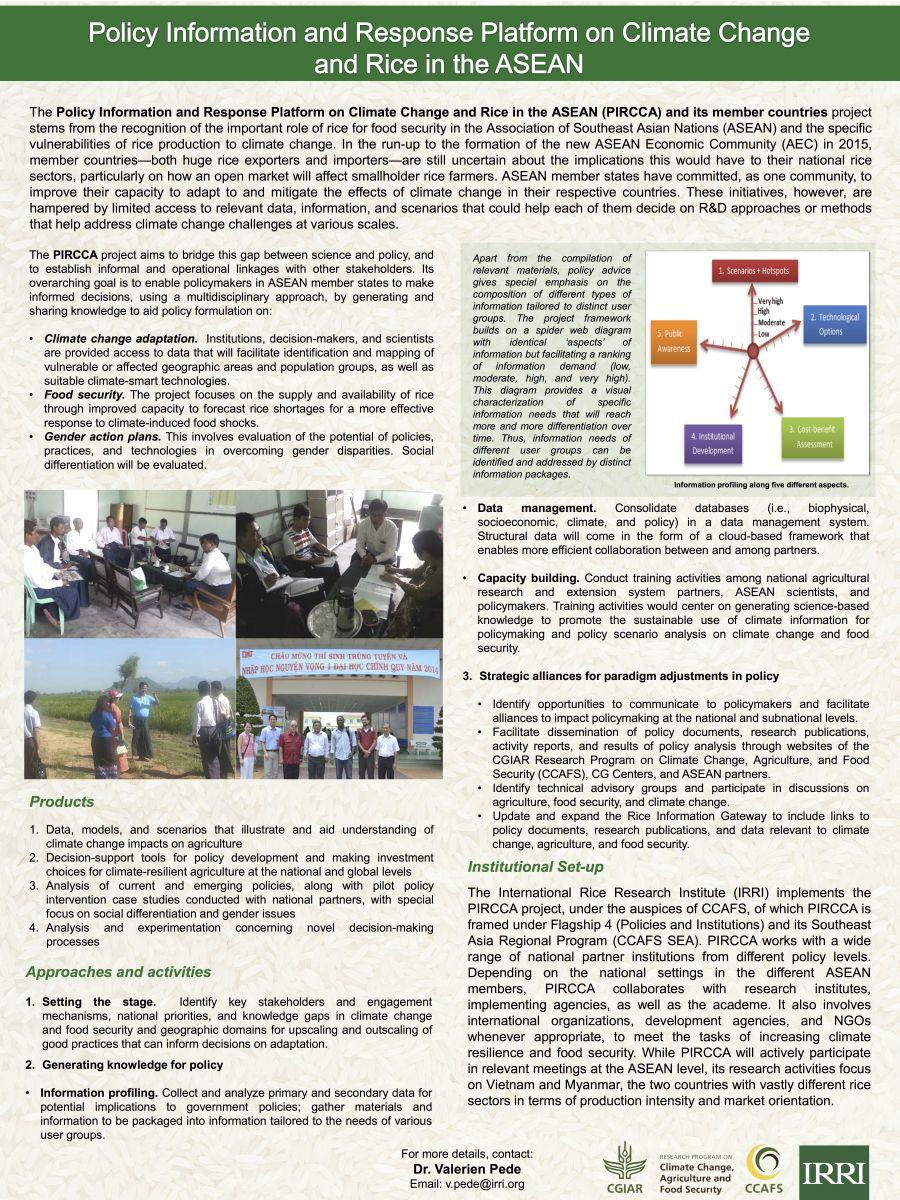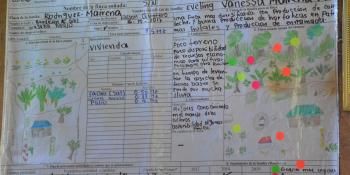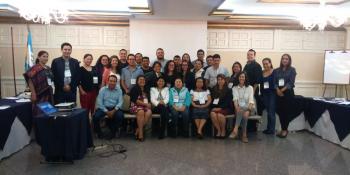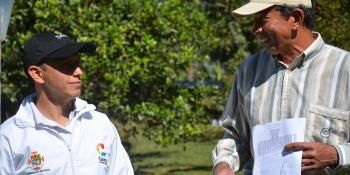Project helps bridge the climate science-policy gap in Southeast Asia

A research project links policy makers with scientists in Southeast Asia to provide targeted climate information for better policy formulation.
Rice is the most consumed staple food in Southeast Asia and rice supply plays a crucial role for regional food security. Unfortunately, climate extremes, such as drought, flooding and heat waves and less predictable weather patterns, are threatening the viability of agriculture and food production throughout the region.
Due to these immediate threats to agriculture production, members of the Association of Southeast Asian Nations (ASEAN) have agreed to build climate resilience and start adapting to climate-related impacts in agriculture – most prominently rice production -- in their respective countries, while also mitigating greenhouse gas emissions.
A major hindrance to implement these national initiatives is limited access to useful and context-specific climate information. In addition, agriculture strategies that offer options for climate change adaptation and mitigation are not yet mainstreamed on national policies.
Click to enlarge the poster
 To help bridge the glaring science-policy gap, the International Rice Research Institute (IRRI) has initiated a project under the CGIAR Research Program on Climate Change, Agriculture and Food Security (CCAFS) Policies and Institutions Flagship that will generate a better understanding of climate-related impacts on agriculture, while producing policy development tools that support climate-resilient agriculture.
To help bridge the glaring science-policy gap, the International Rice Research Institute (IRRI) has initiated a project under the CGIAR Research Program on Climate Change, Agriculture and Food Security (CCAFS) Policies and Institutions Flagship that will generate a better understanding of climate-related impacts on agriculture, while producing policy development tools that support climate-resilient agriculture.
The 4-year project on “Policy Information and Response Platform on Climate Change and Rice in the ASEAN”, is implemented in Vietnam and Myanmar and directly engages national and local stakeholders .
The project supports the government and other policy making institutions and stakeholders in getting the information needed to make informed climate-related decisions and formulate effective and flexible climate policies.
Stakeholders come from different levels in the two countries – national, local, and regional – which include farm communities, different ministers, civil experts, NGOs and policy makers.
We expect that stakeholders will use information provided, in formulating recommendations in their specific units and will translate back into policy change or make adjustments,” says Dr. Valerien Pede, IRRI economist and PIRCCA project leader.
Initiated in 2014, the first stage of the project involved identifying key policymakers’ information or technological needs and current knowledge gaps around climate change and agriculture, and analyzing the national decision-making processes.
For 2015, the project’s primary objective is to generate more knowledge, based from the analyses of collected primary and secondary data for potential implications to government policies. Subsequently, need-based information packages identified from initial project activities shall be developed for different stakeholders. These information packages are to be upgraded annually with increasing amount of information and level of differentiation. Aligned with this is the expansion of IRRI’s Rice Knowledge Bank (RKB) to take into consideration climate change and policy aspects.
Furthermore, policy documents, research publications and results of policy analysis will be shared to policymakers to influence and impact policymaking. Currently, the PIRCCA team is conducting case studies in Vietnam and Myanmar in partnership with universities as well as local and national government offices and organizations. Demonstrations of related findings from these case studies are being carried out to help guide policy making at the subnational level.
“The purpose for working on all these case studies is to generate some context-specific information that can serve as input to policy,” says Dr. Pede.
Climate-proofing policies
The aim, at the end of the project, is to have climate change information and climate-smart agriculture technologies mainstreamed into policy, either at the national or local level. This is reinforced by IRRI’s efforts in the restructuring of the rice sector in Vietnam and Myanmar which shall also contribute to the inclusion of climate information in policy decision making.
Training activities would also be conducted among NARES partners, ASEAN scientists and policymakers on generating science-based knowledge to promote sustainable use of climate information for policymaking and policy scenario analysis on climate change and food security.
All these important activities would hopefully set the stage for the crafting and implementation of one or two national policies on climate change and food security. Moreover, the last two years of the project will also be devoted to creating a platform of information exchange not only for Vietnam and Myanmar but across the ASEAN members as well.
Despite the long and difficult process of influencing climate-related policies, the project holds immense potential in bridging the gap between science and policy, which, in turn, will help communities effectively adapt to climate change.
Related reading:
Download project brochure: The Policy Information and Response Platform on Climate Change and Rice in the ASEAN and its member countries (PIRCCA)
Mary Antoinette M. Magallanes works as a Communications Intern with CCAFS Southeast Asia and the International Rice Research Institute (IRRI). Story edited by Cecilia Schubert, Communications Officer for CCAFS Flagship on Policies and Institutions.



